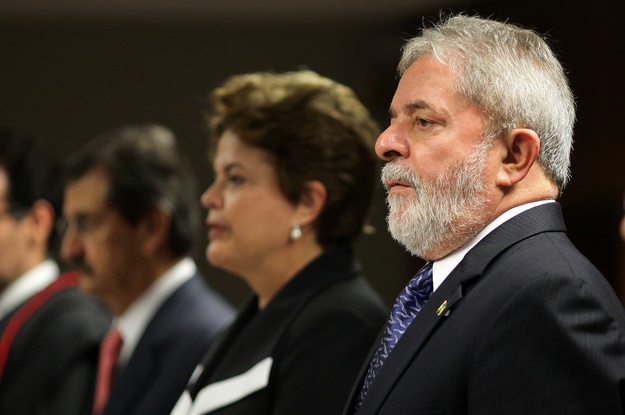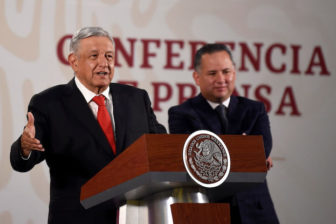To date, President Dilma Rousseff has done a mostly admirable job of handling the historic corruption probe underway in Brazil.
Even as the investigation of graft at state-run oil company Petrobras drew closer to her inner circle, and threatened to culminate in her impeachment, Rousseff allowed federal police and prosecutors to do their work with minimal political interference or pressure. With a few exceptions, including a bizarre statement last June about not “respecting snitches,” Rousseff has rightly celebrated the Petrobras probe as a unique opportunity to clean up Brazil’s institutions and usher in a new era of rule of law. As recently as late January, she criticized some procedural points in a newspaper interview but quickly added: “I have to emphasize that Brazil needs this investigation.”
Yet events this week have raised concerns about a possible shift in her government’s stance.
Namely, the departure of Rousseff’s respected justice minister, José Eduardo Cardozo, suggests that the Petrobras probe has finally drawn too close for comfort. The shake-up came just a week after João Santana, the guru behind Rousseff’s successful 2010 and 2014 campaigns, was arrested and jailed. It also happened as investigators circle ever more menacingly around Luiz Inácio Lula da Silva, the former president and Rousseff ally who remains Brazil’s central political figure.
Cardozo was widely seen as a key guarantor of the Petrobras probe’s independence. His ministry oversees the Federal Police, which works in concert with prosecutors to collect evidence and question witnesses. As a result, Cardozo endured intense pressure from members of the ruling Workers’ Party who leaned on him to protect Lula, in particular. This is not gossip – Cardozo said so himself in an interview this week attributing his departure to “political pressure.” “Allies … accused me of not having the control over the police that some think I should have,” he told Folha de S.Paulo newspaper.
Cardozo’s replacement at the ministry, Wellington Cesar, appears to be a more politicized figure. Cesar owes his career to Jaques Wagner – who is Rousseff’s chief of staff, but also universally recognized as the operative in Brasilia closest to Lula. Within hours of Cardozo’s departure, Wagner raised eyebrows by taking to social media to denounce the “repeated and unjust attacks to which (Lula) has been a victim in recent weeks.” Seeing the writing on the wall, the National Federal Police Federation warned this week that the shake-up “could threaten the current model for criminal investigation.”
All eyes are now on Rousseff. An unconfirmed story in Folha quoted her telling a group of legislators on Tuesday that federal police had “passed the limits” in their investigation of Lula. There have, in fact, been some legitimate concerns about individuals within the Federal Police. Some officers have posted anti-Lula messages on social media, while others may have leaked humiliating photos of Workers’ Party leaders in prison. But such incidents appear isolated. Brazil’s institutions have otherwise performed admirably at a time when most of the political establishment is under siege.
Indeed, the timing of this mini-rebellion in Brasilia suggests it stems from panic more than principle. Santana, the jailed marketing guru, is accused of accepting millions of dollars in illegal Petrobras money for Rousseff’s campaign. If proven true, it substantially raises the risk of either impeachment or (more likely at this point) the invalidation of her 2014 reelection victory by an electoral court. This process, known as cassação, would result in the removal of Rousseff and her vice president and new elections within 90 days. Meanwhile, executives at construction companies that allegedly participated in the Petrobras scheme reportedly agreed this week to plea bargains in return for testimony – increasing the pressure on Lula and Rousseff even further.
Regardless of whether Rousseff stays in office or not, her legacy is now at stake. Despite overseeing a collapse in Brazil’s economy, and a retreat from its ambitions to become a diplomatic power, the president has maintained a reputation for personal integrity and for letting judicial institutions do their jobs. The one hope many Brazilians cling to is that this awful period will be worth it in the long run – that the painful purge of corruption from Petrobras and elsewhere will result in a better, cleaner Brazil. Even in a battle for her political survival, it would be a mistake for Rousseff to throw that achievement away.
—
Winter is editor-in-chief of Americas Quarterly
Any opinions expressed in this piece do not necessarily reflect those of Americas Quarterly or its publishers.








